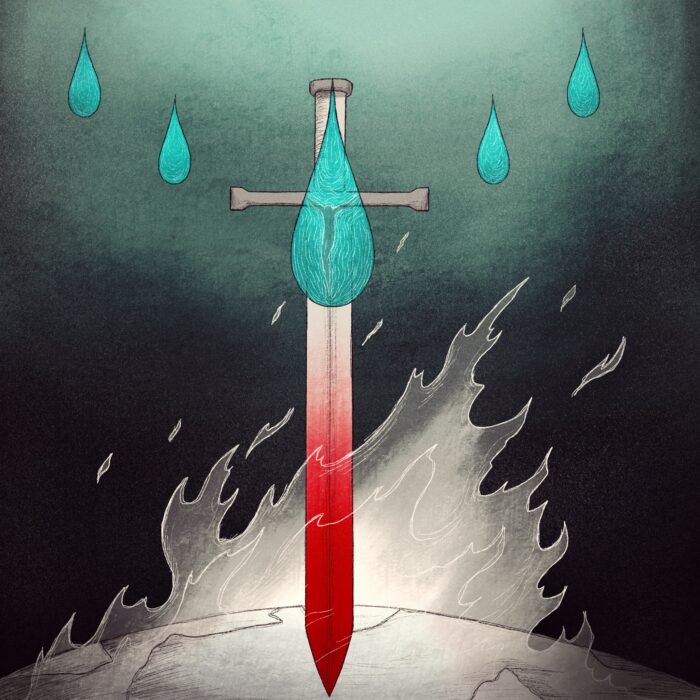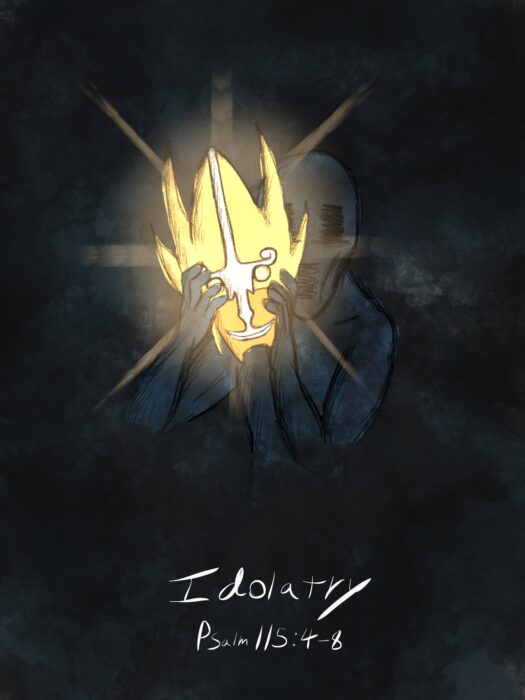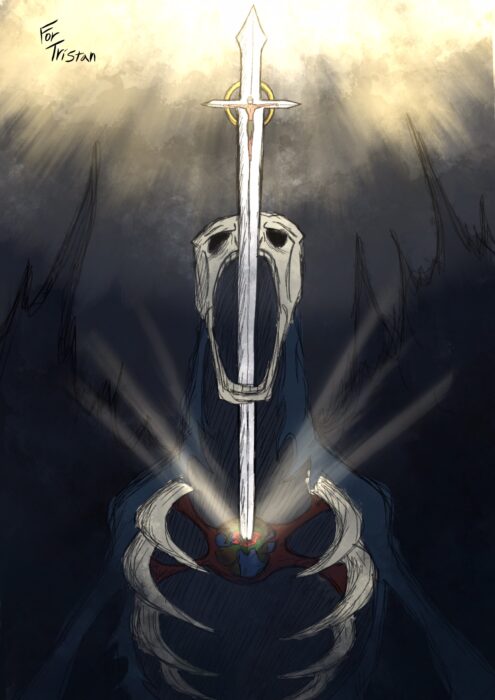
Isaiah 16:10-11, “I have put an end to the shouting. Therefore, my inner parts moan like a lyre for Moab, and my inmost self for Kir-hareseth.”
“Putting an end to shouting,” here refers to the Lord’s judgment on Moab and how it has silenced the glad shouts of harvest that were once heard in their fields. What always intrigues me about this verse (and the similar ones in 16:9 and 15:5, as well as Jeremiah 48:3-32, 35-36) is how the Lord—who is utterly free to do as He will—ordains and carries out judgments that grieve His “inmost self.” How can that be? The only analogue we have for this sort of thing in our experience is when someone is bound by circumstances to do something they know will be painful to them (for instance, a pregnancy in which either the mother or baby or both will die….what to do?). But this cannot be the case for God. He is not bound by anything, His will—His sovereignly free will—is the law (Ps.115:3, etc). And yet here we see Him doing something that causes the depths of His soul to mourn, that causes Him to drench those whom He has judged with His tears (v.9). This is shocking language; what are we to make of it?
At the very least we can say that God’s affectional life is not like our own. In absolute, unfettered, sovereign freedom He chooses to weep with genuine lament and compassion over those whom He shatters in holy wrath. Neither His weeping nor His shattering are feigned, neither are false, neither are a show…both flow from His “inmost being,” both display the beauty of his character. This is a mystery….but one that opens its heart to us on Calvary. Yes, because at the cross we see the Father crush His enemies in the body of His Beloved, we see the Son willingly bear our sin and offer Himself to be crushed, and we see the Spirit as the medium of this crushing. And simultaneously, at the cross we see the Son drench the earth in His tears and blood, just as the Father—we can assume—drenches the Son (and us in Him) with tears of love in the Spirit. Yes, the holy wrath and the weeping compassion of God are not at odds, they are not conflicting passions, and we know this because they sing in harmony on Calvary.
What does it mean to have a God who weeps? A God who weeps, not from weakness or inability, but from a sovereign will that chooses to sincerely weep over and with His creatures? What do the tears of God mean? Is He weeping now for the nations? Is He weeping now for those who oppose Him? Is He weeping now over those on whom He is pouring out wrath? Or was all of His weeping for humanity achieved at the cross? Was all of His weeping summed up in the agonies of the Beloved Son as He became the pagan nations, as He became the sinner, as the Love who wept as He poured out wrath became the one who wept under wrath poured out?
May we bow down before the weight and wonder of God’s weeping—hallowed be His Name.



